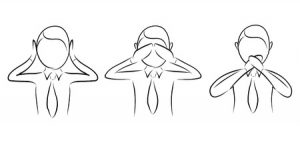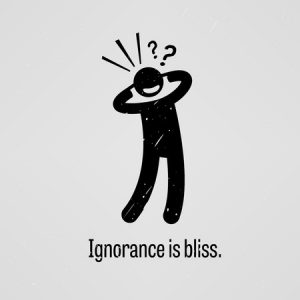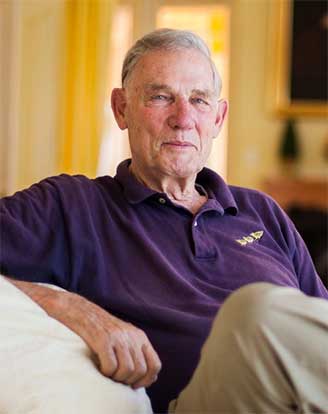
It’s the beauty and the bedrock of capitalism that we can make money by investing without liability. This system has created the wealth of the western world and driven social and industrial progress. But it has created a mental disconnect between our money and ownership. While investors may not be held liable for most corporate behavior, it doesn’t mean that we, as owners, shouldn’t try to improve that corporate behavior.
In many ways, the issue is the same one made by vegetarians about eating meat. Our modern system allows us access to inexpensive animal protein without raising it ourselves. But this same system allows us to ignore the problems caused by raising, transporting and killing animals for meat. We’re insulated from the environmental and ethical problems of that industry – disassociated from it. And that allows us to buy it without a thought to the effects on the environment, on us and on the animals themselves. but when we really stop to think about it we bristle at the abuses behind it all.

Some, though, have become proactive and demanded socially responsible funds that screen out offensive shares. But divesting from or screening out “bad” companies only puts those shares into the hands of owners who don’t care, who won’t pressure the company to change.
So we are awake to the issues and the impact our money can have. Every day people make decisions about how to spend their money. And many, many people are consciously choosing to buy or not buy products based on their values and on the impact those products have on our society. That’s involved ownership of our society and the owners have awakened in recent years to just how much impact they can have. That’s exciting and what’s more exciting is that a younger generation seemed really tuned into changing the world by making conscious spending decisions.
So, how do we translate that energy – that public desire for public good – into the world of corporate investment? Still, corporations make products that are harmful, pour millions into influencing elections and laws, ignore environmental impact and shirk tax responsibilities. Despite our growing knowledge about and interest in corporate impact this still happens. So what’s missing? Owners. All publicly traded companies must have “real owners” who advocate for good governance and socially responsible (and responsive) behavior. Defining the requisite characteristics my require flexibility as there is no shoe that fits every foot. But it is critical that there exist within the corporate framework an energy capable of acting as “steward” or even “fiduciary” for the stakeholders – capable of dealing with such issues as the permissible level of environmental impact and involvement in politics. What? You say that we already have fiduciaries? Sadly, professionals have largely lost the fiduciary characteristics that were ascribed to them by traditional practice. (This tale has been told by brilliance and extraordinary foresight by Jack Coffey, one of the trustees of this organization, in a book called The Gatekeepers. Buy it. It’s really good.)
Ultimately, a fiduciary or ownership culture is only achievable through the commitment of individuals either because they understand that our modern notion of “socially responsible” as one that applies to investing as well as “buying local” or being “green.” A diminished sense of the purpose of the fiduciary obligation lies behind the financial crisis — and we need to create a societal obligation and link it to the ones that have captured the public’s attention on issues of environment and health. Because they are related and ignoring the role that corporate ownership and fiduciary duty play threatens not only our democratic society but contradicts the very values that we hold dear.
